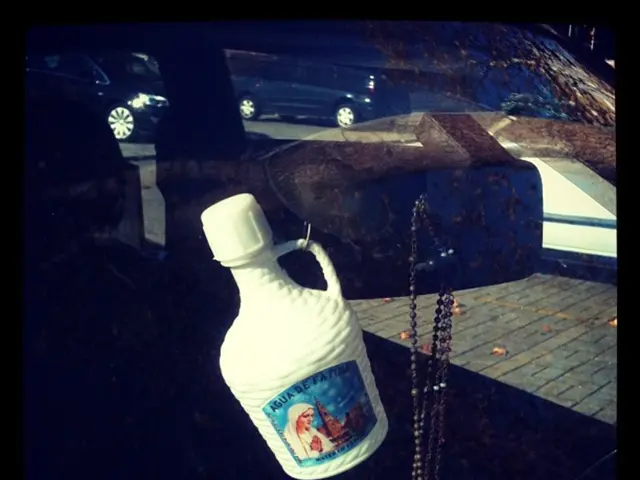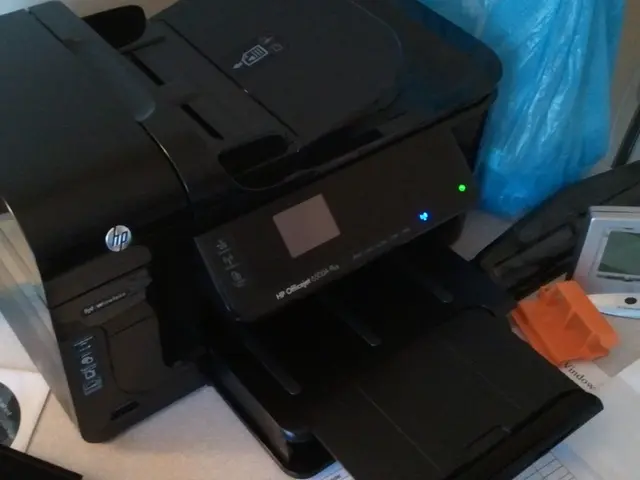Anticipated Arrival of Europe's Largest Floating Residential Project in Rotterdam
Rotterdam's Disused Spoorweghaven Dock May Host Europe's Largest Floating Housing Development
A collaboration between Danish maritime architecture studio MAST and construction company BIK Bouw is set to transform the disused Spoorweghaven dock in Rotterdam, Netherlands. The partnership aims to develop a floating neighborhood that integrates residential units, commercial spaces, and gardens, seeking to provide a viable, sustainable, and scalable alternative to traditional housing.
As urbanization persists and the demand for housing intensifies, finding suitable space in the already crowded cities becomes increasingly challenging. Dutch authorities predict that the Netherlands alone needs approximately 900,000 new homes by 2030. In response, innovative solutions such as the Spoorweghaven project, designed by MAST, are exploring unconventional approaches on the water.
Marshall Blecher, founding partner of MAST, shared his vision with Dezeen, stating: "The project aims to demonstrate floating architecture as a scalable solution – one that embraces water as a vital part of the city. It also strives to show how development can enhance the environment – improving water quality, supporting biodiversity, and encouraging movement by boat and bike."
The Spoorweghaven project is slated to encompass around 100 prefabricated low-cost homes, various commercial spaces, rooftop and floating gardens, and a network of bridges connecting it to the rest of Rotterdam. These innovative features aim to encourage a bike- and boat-friendly community while promoting sustainable living.
Sustainability is at the forefront of this project's design. Floating reed beds, spanning over 900 square meters, will be installed along the harbor's perimeter in collaboration with ecological engineering company Biomatrix. The reed beds would purify the water by absorbing pollutants and provide essential habitats for marine and bird life.
In addition, the use of cross-laminated timber for construction reduces waste during the building process, thereby increasing construction flexibility and sustainability. This sustainable approach allows for potential future relocation or reuse of the structures, making them adaptable to evolving site conditions and circumstances.
This innovative solution addresses Rotterdam's housing shortage without expanding the city's land footprint. The development presents a resilient and scalable alternative to conventional land reclamation, offering economic and social benefits, including low-cost housing, enhanced local economy, and creating a precedent for sustainable urban living.
- The floating neighborhood at Rotterdam's Spoorweghaven dock, a project by MAST and BIK Bouw, aspires to integrate sustainable living into its design, promoting concepts like water purification and biodiversity support through floating reed beds.
- Embracing a bike- and boat-friendly community, the Spoorweghaven project, with its network of bridges and eco-friendly features, seeks to encourage sustainable living within the confines of home-and-garden spaces and commercial areas.
- Environmental-science principles are at play in the Spoorweghaven project, as the floating reed beds, a collaborative effort with Biomatrix, will aid in purifying the harbor water while supporting local marine and bird life, demonstrating a commitment to climate-change solutions.
- Rather than expanding Rotterdam's land footprint, the Spoorweghaven project, with its utilization of sustainable technology, cross-laminated timber construction, and eco-friendly gardens, provides a resilient, scalable, and adaptable alternative for meeting the city's housing demand while emphasizing sustainability and eco-consciousness in urban development.







